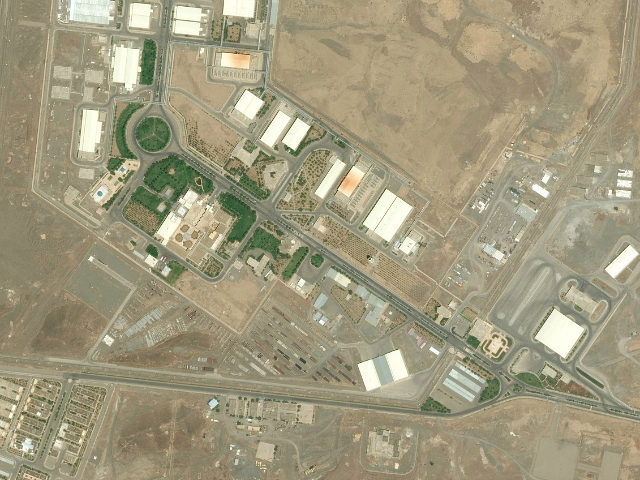Iran’s nuclear chief said on Wednesday that a facility in the country’s Natanz nuclear plant, meant to build advanced centrifuges, will be completed in a month, and noted that the Islamic Republic is prepared to increase its uranium-enrichment capacity if the nuclear deal collapses.
“After the supreme leader’s order, we prepared this centre within 48 hours. We hope the facility to be completed in a month,” Ali Akbar Salehi, who heads the Atomic Energy Organization of Iran (AEOI), told state television on Wednesday, according to Reuters.
Salehi reportedly made the remarks after the inauguration of the montage center at the Natanz plant in central Iran.
“We had designated Natanz for producing one million SUWs, and have provided the required infrastructure,” Salehi said, according to Iran’s state-run Press TV. He said that within ten months, Iran could reach 190,000 SWUs (separative work unit), or centrifuges, of uranium enrichment capacity at the Natanz nuclear facility.
“Within 10 months, with the launch of a set of newly-built enclosures, we could produce 190,000 SWUs at Natanz,” he said, adding that “this does not mean we start the production of advanced centrifuges for industrial use at this facility.”
Under the JCPOA, uranium enrichment research and development activities are permitted to take place exclusively at the Natanz facility at no more than 5,060 centrifuges for the next seven years.
However, Salehi insisted this would occur without violating the terms outlined in the JCPOA. “Nothing has happened in violation of the JCPOA and there has been no disruption in the process of inspections with the recent order and statements of the Leader of the Islamic Revolution,” Salehi said.
Iran has looked to Russia and especially China to help preserve what is left of the JCPOA.
China is Iran’s top trading partner and is reportedly seeking to expand its political influence in the country and the larger region.
Prior to Trump’s reimposition of sanctions on Supreme Leader Ayatollah Ali Khamenei’s personal empire and Iran’s Central Bank, which directly funds Iran’s Islamic Revolutionary Guard Corps (IRGC), the nation’s Foreign Minister Mohammad Javad Zarif said the United States would face an “unpleasant” response if Washington decided to pull out of the Iran nuclear deal.
“Definitely, the measure that the Islamic Republic would take and the reaction that the international community would show to the US move would be very unpleasant to the Americans,” Zarif had said upon his arrival in New York to attend a meeting at the United Nations General Assembly.
Based on Iran’s past rhetoric, some interpreted that message as a potential attack on U.S. military forces and personnel in the region. Or perhaps the taking of even more hostages.
In January, the U.S. State Department issued a travel advisory statement warning Americans against traveling to Iran for safety reasons. “Do not travel to Iran due to the risk of arbitrary arrest and detention of U.S. citizens,” the State Department wrote.
Adelle Nazarian is a politics and national security reporter for Breitbart News. Follow her on Facebook and Twitter.

COMMENTS
Please let us know if you're having issues with commenting.